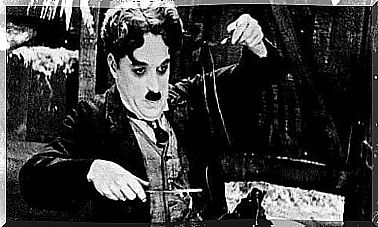Psychogerontology: History And Characteristics

Psychology is the science that studies the affective, cognitive, emotional and behavioral areas in human life. It is divided into several specialist branches. Today we are talking about a particular branch, psychogerontology, or the science that studies aging from a psychological point of view.
Just as there is a child psychologist, there is a psychologist who specializes in the problems of the elderly. In this article we will look at the origin of geriatric psychology and its characteristics. We will also show the advantages that can be obtained thanks to the support of a psychologist specialized in this field.
History of psychogerontology
There is no historical point of reference that allows us to establish the birth of gerontological psychology. We have, however, two dates: in 1879 Wundt started scientific psychology and in 1903 Metchinikoff laid the foundations of gerontology.
Today we are witnessing a phenomenon with a significant impact in the psychological field. Developed countries are aging, complicit in a longer life expectancy and a sharp drop in the birth rate.
It is therefore the same circumstances that feed the need to study the needs of the elderly. As a result, the possibilities for intervention in this segment of the population have improved.
Many researchers have contributed to broadening our knowledge in this regard. One of the most important figures, James Birren argued that, just as gerontology deals with old age, the psychology of aging must study the processes of the life cycle, of stability and of change. This also includes the cognitive, motor and emotional variables of older people.

Characteristics of psychogerontology
Psychogerontology contains a number of elements. Let’s see some of them:
- It deals with the evolutionary study of the life cycle. Gerontological psychology is a relative of developmental psychology which analyzes development over a lifetime.
- It aims at optimal aging. Promote health, prevent disease or make it more tolerable for older people.
- It deals with the welfare of the caregiver. He is not concerned only with the elderly, but also with the people who care for him.
- Educate. Through psychoeducation, the elderly person learns to manage their thoughts, behaviors and emotions.
- Research : Study all the variables related to old age.
- It intervenes. Many of the interventions proposed by this science are based on clinical psychology and social psychology. He therefore resorts to both group work methods and individual psychotherapy. Work with families and day care centers.
- Protects rights through legal psychology, especially in legal interdiction proceedings. It also improves the well-being of elderly people through promotion and prevention services; places particular emphasis on health, culture and leisure.
These are the areas of intervention of the psychogerontologist, a profession that is accessed after a degree in psychology and specialization.
Psychogerontology is not limited to this, but can also enter into the processes of recruitment, evaluation, orientation and training of operators who work with elderly people.
It also deals with market surveys to better understand the needs of the elderly; this is done, for example, through targeted programs or projects.

What advantages can it offer?
- Assessment, diagnosis and treatment of the problems of the elderly person. It helps to overcome a difficult moment or, simply, to improve cognitive, affective, functional, social and behavioral skills.
- Disease prevention and maintenance of optimal health.
- Research and teaching in the geriatric field. There is still a lot of room for improvement in this area.
- Advice and mentoring offered by the public service.
- Attention paid to the elderly person, their family members and caregivers.
- Professional training for carers and operators in the sector.
- Socio-legal protection of the elderly person.
- Family mediation.
- Prevention of dementia.
- Psycho-stimulation.
- Affective validation therapy.
- Support groups.
This field of psychology offers caregiver selection, vocational training and stress disorder prevention services. In fact, it is not a question of offering help and support only to the elderly, but also to those who take care of them.
The existence of a branch of psychology dedicated to the elderly is good news for an ever-expanding sector of society. Thanks to this discipline we can approach older people in a more precise and effective way. On the other hand, it offers various job opportunities in a sector with a growing demand.









